Once upon a time, in the lands surrounding ancient Greece, a great threat loomed in the form of barbarous northern invaders. These fierce warriors, known as the Northborn, plundered and pillaged cities, leaving behind a trail of destruction and despair. Their relentless conquests soon led them to the gates of the great city of Athens, where their leader, the ruthless warlord Agrios, sought to claim the city as his own.
As the Northborn prepared to lay siege to Athens, a mysterious prophecy echoed through the city. It spoke of the birth of a new goddess, one who would rise to save the city from the clutches of the invaders. This prophecy would soon come to fruition in the form of Athena, the goddess of wisdom and warfare.
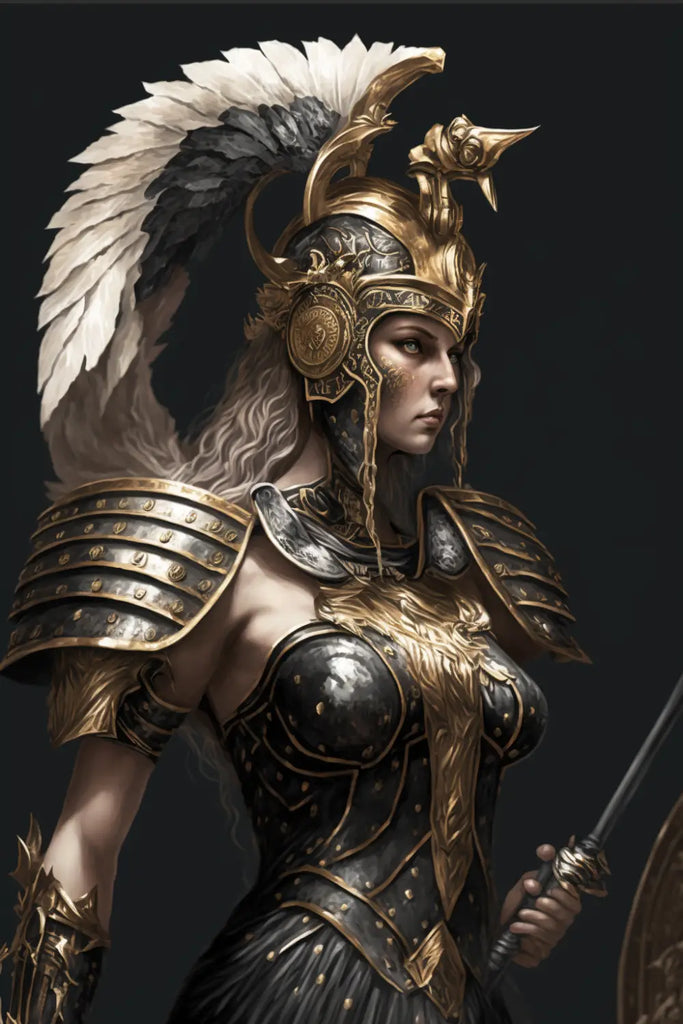
Athena's birth was nothing short of miraculous. Born fully armored from the forehead of her father Zeus, the king of the gods, she emerged as a formidable warrior, ready to defend Athens from the Northborn's onslaught. As the tale of her birth spread throughout the city, the Athenians were filled with hope that their salvation was at hand.
The day of battle arrived, with the Northborn gathered in a fearsome formation outside the city gates. Agrios, a man of enormous stature and savage strength, stood at the forefront, eager to claim his prize. The Athenian army, led by the wise General Themistocles, stood ready to defend their city, but they knew that their chances of victory were slim without the aid of a divine power.
As the battle commenced, Athena, her golden armor gleaming in the sunlight, descended from the heavens, her arrival heralded by a chorus of celestial trumpets. The sight of the goddess on the battlefield instilled courage in the hearts of the Athenians and struck fear into the Northborn.
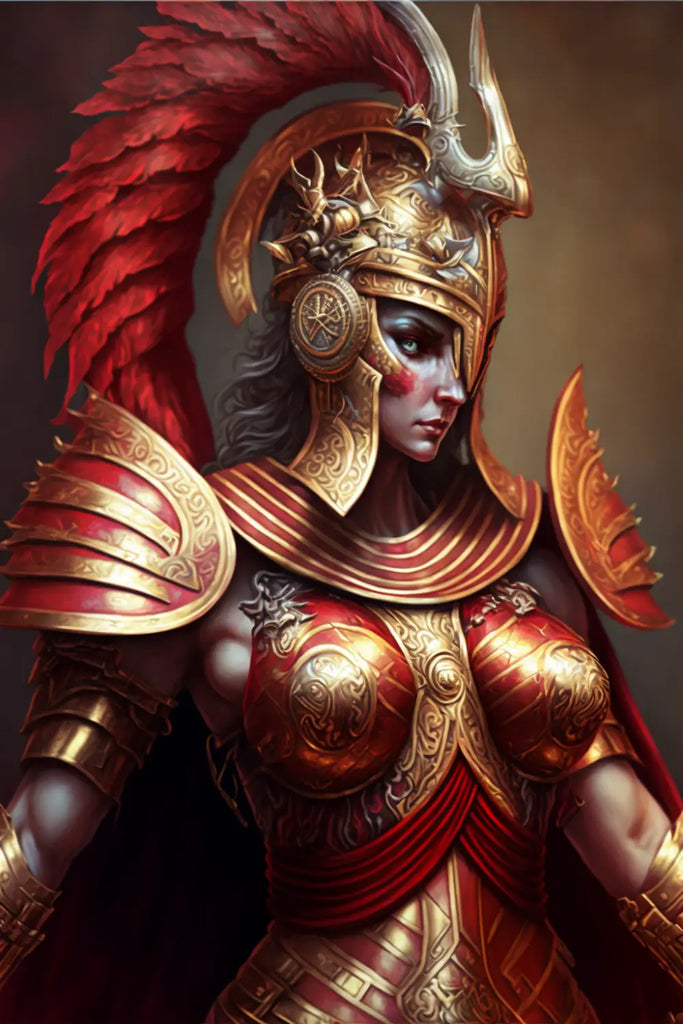
Athena's prowess in battle was unparalleled. Her movements were swift and precise, her strategies bold and cunning. With her shield, she deflected the arrows and spears of the enemy, and with her spear, she struck down countless Northborn warriors. Her wisdom and tactics allowed the Athenian army to hold its ground and push back the invaders.
In a climactic confrontation, Athena faced Agrios himself. The two warriors clashed in a fierce duel, their weapons clashing with the fury of a thousand storms. Athena's skill and cunning were matched only by Agrios' brute strength and relentless ferocity. The battle raged for hours, with neither side gaining the upper hand.
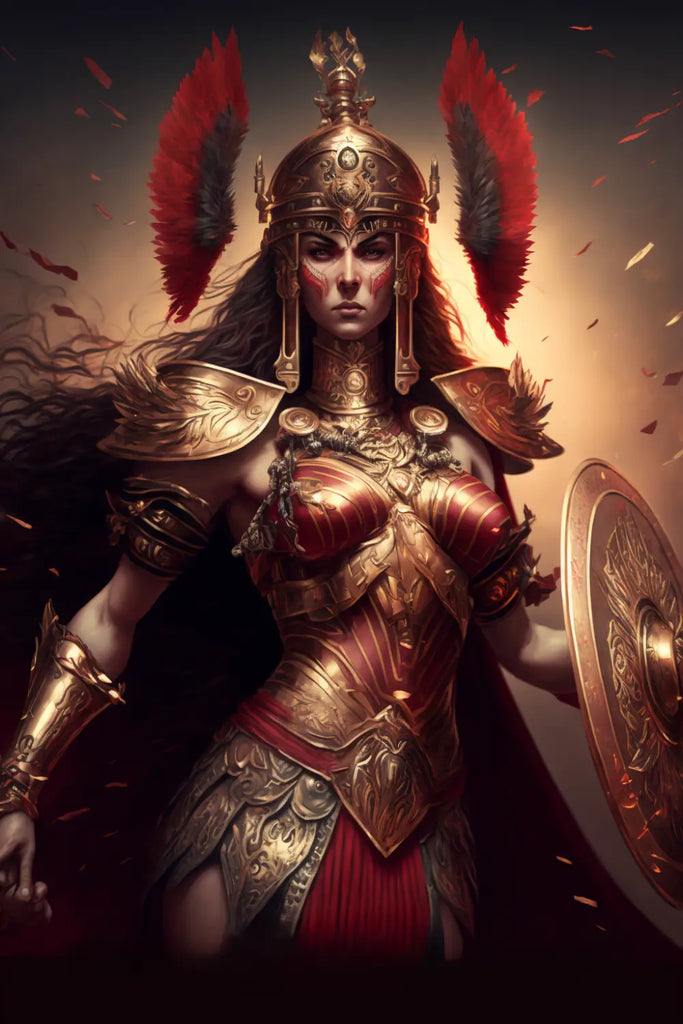
However, as the sun began to set, Athena found an opening in Agrios' defenses. With a powerful thrust of her spear, she pierced the warlord's heart, bringing him to his knees. As the life drained from his eyes, Agrios whispered a final curse, vowing that the Northborn would rise again to seek their vengeance.
With their leader defeated, the remaining Northborn warriors fled in disarray, their dreams of conquest shattered. Athena, victorious and triumphant, ascended back to the heavens, leaving the grateful Athenians to rebuild their city. As the people of Athens celebrated their victory, they sought to honor the goddess who had saved them from certain doom. They began constructing a magnificent temple, the Parthenon, atop the sacred hill of the Acropolis. The temple's intricate friezes and sculptures would immortalize the story of Athena's birth and her triumphant victory over the Northborn.
Meanwhile, in the far reaches of the North, the remnants of the Northborn licked their wounds and plotted their revenge. They sought out new allies and dark powers, vowing to one day return and avenge their fallen leader, Agrios. The threat of their return would hang like a shadow over the city of Athens, a constant reminder of the goddess' eternal vigilance.
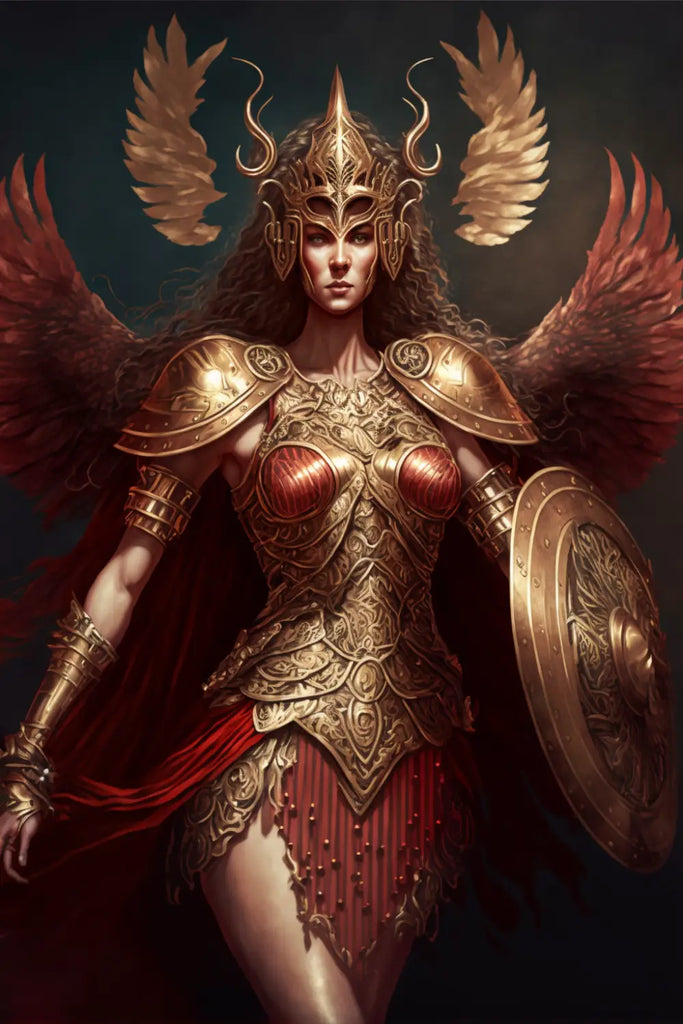
Back in Athens, the city was bustling with renewed vigor as the citizens worked to rebuild their homes and restore their beloved city to its former glory. General Themistocles, now hailed as a hero, continued to lead the Athenian army, preparing them for any future threats. He ensured that the city's defenses were stronger than ever, and he trained the soldiers in the art of warfare, drawing upon the wisdom of Athena herself.
As the years passed, the legend of Athena's victory over the Northborn grew, inspiring countless artists and philosophers to seek wisdom and courage. The city of Athens flourished as a center of learning, culture, and democracy, with its people living under the watchful gaze of their divine protector.
However, as the prophecy had foretold, the Northborn returned with a vengeance, their ranks bolstered by monstrous creatures and sorcerers wielding dark magic. The Athenians, led by a new generation of heroes and guided by the wisdom of Athena, fought fiercely to defend their city once more.
Athena, ever watchful, descended from the heavens to join the fray, her armor gleaming with celestial radiance. With her divine strength and wisdom, she guided the Athenian warriors as they clashed with the Northborn, their enchanted weapons clashing in the heat of battle.
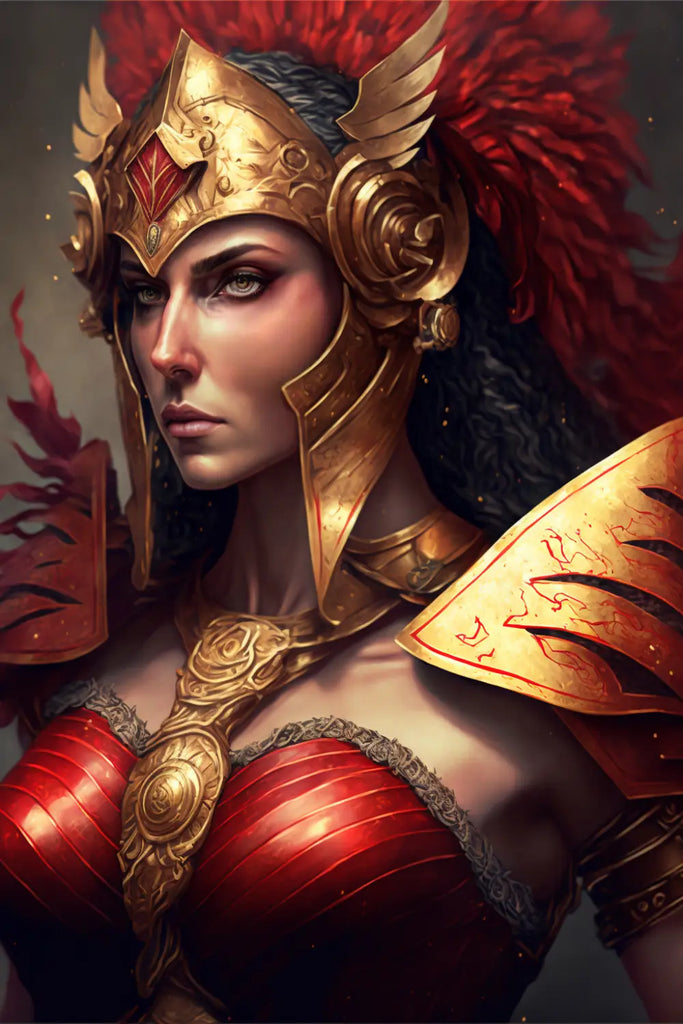
The battle raged on for days, with neither side yielding an inch. The air was filled with the sounds of clashing steel, desperate cries, and the roaring of the monstrous creatures that fought alongside the Northborn. However, the Athenians, drawing upon their courage and the divine guidance of Athena, slowly began to turn the tide of the battle.
In a final, desperate gambit, the Northborn unleashed their most powerful sorcery, a spell that threatened to engulf Athens in a storm of darkness and destruction. But Athena, calling upon her divine wisdom, countered the spell with a celestial light, banishing the darkness and turning it against the Northborn.
Defeated once more, the Northborn retreated to their northern lands, their plans for revenge thwarted by the goddess and her mortal allies. Athens stood tall, a shining beacon of wisdom and courage in a world filled with strife and turmoil.
As the story of Athena's Fury continued to spread throughout the ages, the goddess' legacy of wisdom and bravery would inspire countless heroes and scholars, a testament to the indomitable spirit of the ancient Athenians.
















